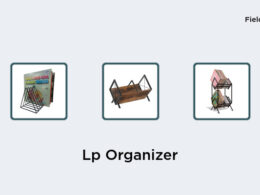Building a Home Library: Impact on Child Development and Academic Achievement
Building a Home Library: How It Impacts Child Development
Building a home library is not just about having a physical space to store books, but it is also about creating a reading-friendly environment that fosters a love of reading. Children who grow up surrounded by books are more likely to become lifelong readers and learners. Reading from an early age helps children develop cognitive skills, language skills, and even emotional intelligence. When children have regular access to books, it can help them develop a curiosity about the world outside their own experiences. It can also encourage them to ask questions and seek out information to satisfy their curiosity. Having a home library not only develops a child’s reading skills, but also their critical thinking and creativity.The Correlation Between Home Libraries and Academic Achievement
There has been much research into the correlation between home libraries and academic achievement, and the results are overwhelmingly positive. A study reported by Pacific Standard revealed that Regardless of how many books the family already has, each addition to the home library helps children do better on standardized tests. According to the National Assessment of Educational Progress, fourth graders who reported having more books in their homes scored higher in math, science, and reading. Similarly, a study by the University of Nevada found that children who grew up with a home library with more than 500 books had higher levels of academic achievement. Having a home library is not a magic solution to academic problems, but it can certainly contribute to a child’s success in school.Pacific Standard Report: The Benefits of Having a Home Library for Children
The Pacific Standard report highlights several ways in which having a home library benefits children. One of the major benefits is increased academic achievement. As previously mentioned, children who have access to books in the home tend to perform better in school. Another benefit is improved reading skills. The report states that children who grow up in homes with at least 20 books get three years more schooling than children from bookless homes, independent of their parents’ education, occupation, and class. This is a powerful indication of the impact books can have on a child’s education and future opportunities. The report also notes that children who grow up with a home library are more likely to develop a strong sense of empathy and compassion. As they read stories that explore different perspectives and experiences, they learn to understand and relate to others, regardless of their differences.The Importance of Encouraging Reading in the Home
Reading is an essential skill that is needed for success in all areas of life. One of the best ways to encourage children to read is to ensure they have access to a variety of books in the home. Children who have a love of reading tend to be more curious, creative, and articulate. They also tend to have better communication skills, which can translate into success in all areas of life. Parents can encourage reading in the home by setting aside time for reading every day, making regular library trips, and modeling good reading habits themselves. Creating a reading-friendly environment can go a long way in fostering a love of reading in children.Enhancing Reading Comprehension with Access to Books
Access to books is essential for developing reading comprehension skills. When children have access to books, they can practice reading at their own pace and develop strategies for understanding unfamiliar words and concepts. Having a variety of books available also helps children develop a range of reading comprehension skills. Picture books, for example, can help younger readers develop visual literacy skills, while longer novels help older readers develop more complex analytical skills. Providing children with access to different types of books can help them become well-rounded readers.- Reading comprehension is essential for academic success
- Access to books and different types of texts can help children develop reading comprehension skills
- Promoting a love of reading through access to books can have immeasurable benefits for children






















